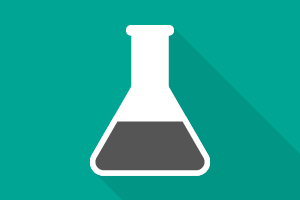Classroom Resources: Gases
Filter by:
1 – 15 of 15 Classroom Resources
-

Gas Laws, Density, Temperature, Pressure, Volume | High School
Lesson Plan: Gases Unit Plan Mark as Favorite (22 Favorites)
In this lesson, students will investigate gases similar to how scientists learned about them “back in the day.” Students begin by investigating gas behavior, then they investigate gas density and use this to interpret Avogadro’s hypothesis that gases under the same conditions combine in simple whole number ratios.
-

Entropy, Kinetic Molecular Theory, Molecular Motion, Intermolecular Forces, Density, Volume | High School
Activity: Connecting States to Entropy Mark as Favorite (15 Favorites)
In this activity, students use blocks to model different states of matter and the Kinetic Molecular Theory to understand the concept of entropy. This is a concept mandated by SAT level or AP level high school chemistry class.
-

Gas Laws, Ideal Gas, Volume, Temperature, Pressure, Kinetic Molecular Theory, Density, Graphing, Density, Chemical Change, Stoichiometry, Balancing Equations, Chemical Change, Dimensional Analysis | High School
Lesson Plan: The Gas Laws Unit Plan Mark as Favorite (99 Favorites)
The AACT high school classroom resource library and multimedia collection has everything you need to put together a unit plan for your classroom: lessons, activities, labs, projects, videos, simulations, and animations. We constructed a unit plan using AACT resources that is designed to teach the Gas Laws to your students.
-

Gas Laws, Kinetic Molecular Theory, Ideal Gas, Temperature, Volume, Pressure, Density, Density, Experimental Design, Scientific Method | High School, Middle School
Activity: Hot Air Balloon Mark as Favorite (47 Favorites)
In this activity, students use their knowledge of Charles’ law to build a hot air balloon and evaluate its design.
-

Combustion, Chemical Change, Chemical Change, Density, Kinetic Molecular Theory, Density | High School
Demonstration: Liquid and Gas Burning Comparison Mark as Favorite (7 Favorites)
In this demo, students will witness the burning of a substance in its gas and in its liquid states. They will carry out the demonstrations themselves, and compare the results of the two reactions.
-

Molecular Motion, Density, Physical Properties, Density, Gas Laws, Ideal Gas, Temperature, Pressure, Volume | Middle School, High School
Simulation: Density Mark as Favorite (15 Favorites)
The simulation for the September 2015 issue allows students to investigate the effect of changing variables on both the volume and the density of a solid, a liquid, and a gas sample. Students will analyze the different states of matter at the particle level as well as quantitatively.
-

Chemical Change, Combustion, Balancing Equations, Density, Specific Heat | High School
Demonstration: Methane Bubble (Dragon Ball Z) Mark as Favorite (6 Favorites)
In this demonstration, students will observe the combustion of a methane bubble. This exciting demonstration can be used as a dramatic and engaging introduction to the concepts of combustion reactions, chemical change, and balancing equations.
-

Chemical Change, Density, Chemical Change, Density | Elementary School, Middle School, High School
Demonstration: Fire Extinguisher Mark as Favorite (17 Favorites)
In this demonstration, students will observe a chemical reaction, and see how the product can be used to extinguish a fire.
-

Density, Density, Chemical Change, Observations, Inferences | High School, Middle School
Demonstration: Comparing Gas Density Mark as Favorite (8 Favorites)
In this demonstration, students will observe a reaction between baking soda and vinegar in the presence of a variety of different heights of lit candles. The initial environment has plenty of oxygen present in order to sustain the candle’s flame; however the reaction will produce carbon dioxide which will cause the lit candles to extinguish in order of height. Students will analyze and compare the presence of the gases in the container and make determinations about the densities of each.
-

Gas Laws, Sublimation, Ideal Gas, Volume, Temperature, Pressure, Density, Phase Changes, Interdisciplinary, Density, Physical Change, Mole Concept, Dimensional Analysis, Measurements | High School
Demonstration: Ideal Gas Law using Carbon Dioxide Mark as Favorite (15 Favorites)
In this demonstration, students observe dry ice sublime while the CO2 gas fills a balloon. They then calculate the moles and volume of CO2 produced.
-

Gas Laws, Matter, Density, Density, Temperature, Pressure, Volume, Graphing, Observations, Measurements | High School, Middle School
Lab: Pressure Bottle Mark as Favorite (5 Favorites)
In this lab, students determine the relationship between volume and pressure of a gas and its temperature and address the common misconception that air does not have mass or density.
-

Gas Laws, Molar Mass, Density, Temperature, Pressure, Volume, Ideal Gas, Physical Change, Observations, Density, Identifying an Unknown, Error Analysis | High School
Lab: Molar Mass of Dry Ice Mark as Favorite (14 Favorites)
In this lab, students will use gas laws to calculate the molar mass of dry ice and then use the information to identify the compound that makes up this substance.
-

Density, Pressure, Temperature, Volume, Density, Error Analysis, Error Analysis, Measurements | High School
Lab: Gas Density and Relative Molecular Mass Mark as Favorite (3 Favorites)
In this lab, students will quantitatively determine the densities of four gases.
-

Density, Density, Observations, Inferences | High School, Middle School
Demonstration: Qualitative Look at Gas Density Mark as Favorite (6 Favorites)
In this demo, students witness three types of gases and observe their relative densities to air.
-

Density, Combustion, Lab Safety | High School
Demonstration: Density of Gases and Particle Diagrams Mark as Favorite (9 Favorites)
In this demonstration, students will observe the teacher carry out two combustion reactions. First the teacher will burn a small sample of propane gas in a beaker. Next the teacher will burn a small sample of methane gas. Students will create particle diagrams in order support their explanation and model their observations as they improve their understanding of gas density.